The Writing Life of: Carol Cooper
Carol Cooper
This week I am thrilled to be interviewing author Carol Cooper. Carol will be sharing with us details of her writing life, telling us all about her new book ‘The Girls from Alexandria‘, which was released on 29th April 2021, and answering a few fun questions too. This post contains affiliate links.

Carol Cooper is a doctor, journalist, and author.
Born in London, she was only a few months old when her cosmopolitan family took her to live in Egypt. She returned to the UK at eighteen and went to Cambridge University where she studied medicine and her fellow students. On her path to a career in general practice, she worked at supermarket check‐outs, typed manuscripts in Russian, and spent years as a hospital doctor.
Following a string of popular health books as well as an award-winning medical textbook, Carol finally fulfilled her dream of writing fiction. She mined the rich material of her childhood for her third novel, The Girls from Alexandria.
Carol lives with her husband in Cambridge and Hampstead. She has three grown-up sons and three stepchildren.
1) Did you enjoy writing when you were a child?
I certainly did. I filled notebook after notebook. One story I remember writing was about a witch who burned to death because she was smoking in bed. Perhaps I had an inkling at the time that I would eventually become a doctor and medical journalist!
I always wanted to be a writer, even when I was a toddler bashing away at an old typewriter without any idea of what the keys actually did. They usually jammed together, that’s what they did, but I pressed on.
2) Which author shaped your childhood?
Enid Blyton was a big influence, and I also loved reading What Katy Did and What Katy Did Next. But the author who most shaped my childhood was undoubtedly my mother. When I was about five years old, she began writing her first novel. This seemed to take up most of her time – and mine, because she’d sit in my bedroom with her pencils and paper, demanding absolute silence.
‘Don’t break my train of thought’, she’d warn.
‘I’m going to write a book too,’ I countered. As frustrating as it was for me as a child, I became immensely proud of her writing, and I’m sure it shaped my future career.
3) What motivated you to begin your first novel?
The motivation was there way back. I first tried to write a novel when I was a student but it didn’t get past a hundred pages, probably because I didn’t know anything about life except how to pass exams (even that was arguable). By the time I had three children and had been a doctor for a few years, I had acquired a bit of maturity and experience. I had also written a lot of non-fiction, both articles for the press and a string of books on parenting.
4) Do you plot your book, or are you a pantser?
I am very much a pantser. My fiction is character-driven and, once I have strong characters and have put them into the book’s setting, they sometimes do their own thing.
5) What is your average writing day?
My day depends on what else is on the agenda. I’m still a doctor so I might be teaching medical students or seeing patients – mainly in vaccination clinics these days. I also write for The Sun newspaper and that means responding to whatever health stories are breaking, so it can’t be planned ahead. Basically I write every day whenever I can grab an hour or more, though when I get to my desk I may find someone’s already there.
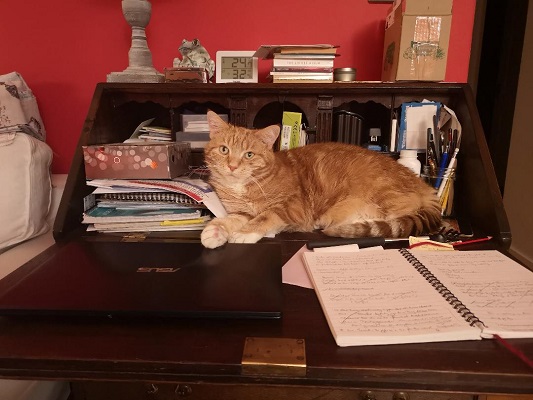
Where Carol Cooper Writes
6) What is the best thing about being an author?
I love creating something, and then sharing it with others who appreciate it. Like most authors, I find that doubts can creep in, but sometimes I look back years later on what I’ve written and have to agree that it’s really not bad at all.
Publisher – Agora Books
Pages – 340
Release Date – 29th April 2021
ISBN 13 – 978-1913099701
Format – ebook, paperback, audio
Synopsis
Memories are fragile when you are seventy years old. I can’t afford to lose any more of them, not when remembering the past might help with the here and now.
Nadia needs help. Help getting out of her hospital bed. Help taking her pills. One thing she doesn’t need help with is remembering her sister. But she does need help finding her.
Alone and abandoned in a London hospital, 70-year-old Nadia is facing the rest of her life spent in a care home unless she can contact her sister Simone… who’s been missing for 50 years.
Despite being told she’s ‘confused’ and not quite understanding how wi-fi works, Nadia is determined to find Simone. So with only cryptic postcards and her own jumbled memories to go on, Nadia must race against her own fading faculties and find her sister before she herself is forgotten.
Set against the lush and glamorous backdrop of 20th century Alexandria, Carol Cooper’s third novel is equal parts contemporary mystery and historical fiction: a re-coming of age story about family, identity, and homeland.
Purchase Online From:
7) How did you go about researching the content for your book?
I grew up in Alexandria, and The Girls from Alexandria uses a lot of the detail that I still retain from my childhood. I’m a great believer in writing what you know, so it’s just as well I have a good memory. Getting the story down on paper was a lot of fun and, although the book is obviously fiction, every scene set in Alex takes me back to the very real sounds and smells of my youth.
All the same, I double-checked quite a bit with my aunt who lived in Egypt longer than I did and has also been back there more recently. To familiarise myself with more recent changes in the country, I also dipped into YouTube as well as more formal sources from Cambridge University library – the staff there deserve a huge vote of thanks.
8) How long did it take to go from the ideas stage to writing the last word?
The writing itself probably took two or three years, but writers are always rewriting and it’s not until the manuscript goes off to press that you really put your pen down. If I think about it, though, perhaps the ideas for the setting and the time period were whirling round in my head longer ago than I imagine.
9) What made you choose the genre you write in?
While my previous novels were contemporary fiction, The Girls from Alexandria is a bit of a departure for me because it has a dual timeline that gives it a historical element. It seemed the best way of writing a story that spans more than 60 years. All my novels have multicultural characters. I grew up in a cosmopolitan world and am myself half Arab. Finally, there’s always a medical strand to my books.
In The Girls from Alex, for instance, I get inside 70-year-old Nadia’s head as she becomes more and more confused, and then goes into hospital to where she’s put through batteries of questions and tests to find out if it’s dementia or something else. Again, it’s that old adage to write what you know.
10) How did you come up with the name(s) for your lead character(s)?
I chose names that work in the Middle East yet would still be familiar to English speakers, so my main character is Nadia and her sister is Simone. There are also various friends and acquaintances. While Zouzou (she’s Egyptian) and Androulla (Greek) may not be well-known to a British readership, they’re easy enough to decipher. Some names are French, like Georgette and Joséphine, because a lot of people of Lebanese origin consider French to be their mother tongue and give their children typically French names.
11) Can you give us an insight into your characters?
My main characters are educated and, like almost everyone in Alexandria at the time, speak several languages, but Nadia is a little naïve. She idolises her sister who, at only two years older than herself, seems to know everything and is brave enough to speak her mind. She and Simone were raised in a traditional patriarchal society where girls and women are side-lined and boys are given every advantage. Nadia slowly realises the unfairness of it all and she evolves as she deals with what life throws in her way. Simone, meanwhile, is not quite the confident feisty young woman Nadia thinks she is, and that of course has consequences.
12) How did you feel when you had completed your book?
I was elated. I was even more thrilled when I got offers from two different publishers. Then I came down to earth and realised I should think about writing another book.
Fun Questions
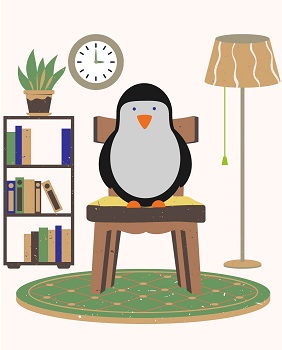
1) Do you have a favourite quote you live by?
Several quotes mean a lot to me. You cannot predict the future is probably my favourite. I usually attribute it to the late Professor Stephen Hawking, but I could be wrong.
2) Do you have any pets?
Yes. I have a lovely female ginger cat with white paws. She’s called Mishmish which means apricot in Arabic. Ancient Egyptians used to worship cats, and I don’t think I’m far off that.
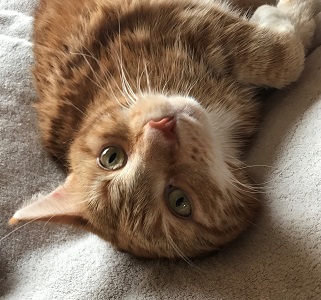
3) Your book has been made into a feature film, you’ve been offered a cameo role, what would you be doing?
I’d be burping. Aunt Zahra wears a towelling turban and swallows air whenever she speaks or eats, which she constantly brings up with every sentence. She swears she can’t help it, but Nadia suspects she does it on purpose. Still, nobody complains. Elderly relatives are respected in the Middle East no matter how much they belch.
4) If you could travel to the fictional world of any book for the day, which would you choose?
To be honest, I prefer real worlds in fiction. May I choose Brighton, as depicted in Graham Greene’s Brighton Rock? It was a seedy and violent world at the time, but all the same I would love to see the resort as it was decades ago.
5) There’s a penguin sitting in your writing chair, what is the first thing he says to you?
“Not now. You’ll break my train of thought.”
I would like to say a big thank you to Carol Cooper for sharing with us details of her writing life and for a wonderful interview.

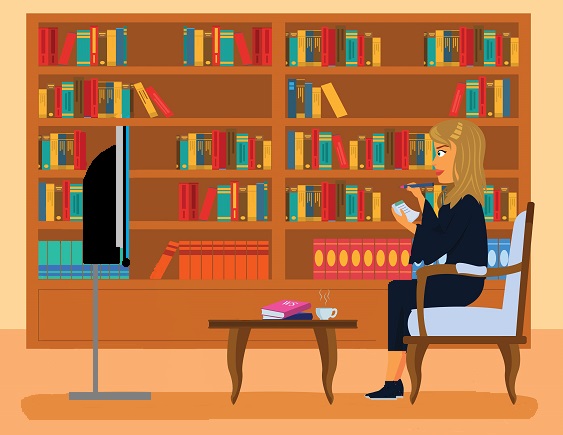
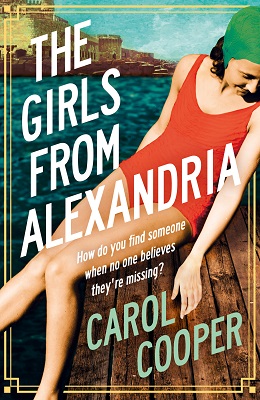





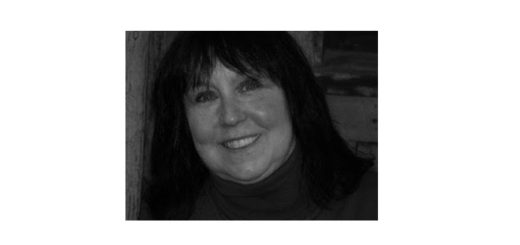
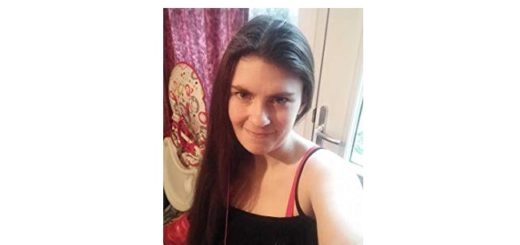
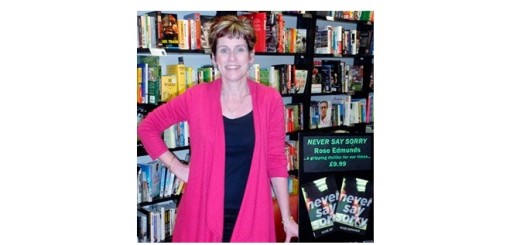

Carol Cooper is one busy lady! Very impressive. I have always wanted a ginger cat so I really have cat envy right now. The Girls from Alexandria sounds really good and I really like the names that were chosen for the characters. I do look forward to your interviews.
I always enjoy your interviews and this time was no different. Carol Cooper is a new to me author and so it was great to get a peak into her life as writer.
She sounds like good fun and I adore her Mishmish. I may have to steal that name for my next golden tabby
The Girls From Alexandria looks so up my alley and I love the cat photo. Excellent interview.
Wow!! I am inspired by her energy and all she does.. and look forward to reading the book
I have just found your interviews. I am now working my way through them, make take me a while as you have so many. Carol Cooper’s book seems like a right treat.
Thanks Tasha, glad you liked my interview with Carol Cooper and you enjoyed hearing about her book too.
Thanks Nadene, it’s lovely to hear that you enjoy my interviews and that you liked finding out about Carol Cooper too.
Thanks DJ, Mishmish sounds like a fab name, and I agree Carol seems like a lot of fun.
Thanks Kate, glad to hear you like the sound of Carols book and enjoyed her cat photo too.
Thanks Vidya, I know Carol seems like one busy lady. I hope you enjoy her book.
Thanks Alison, lovely to hear you have just found my interviews, they have been going for years so you have a few to get through. Good to hear you like the sound of Carol’s book.
Excellent interview. It’s kind of keen to discover what gave someone the writing bug and how they got their start and how they keep going.
Thanks Robin, I’m so happy to hear you enjoyed the interview and found it interesting.